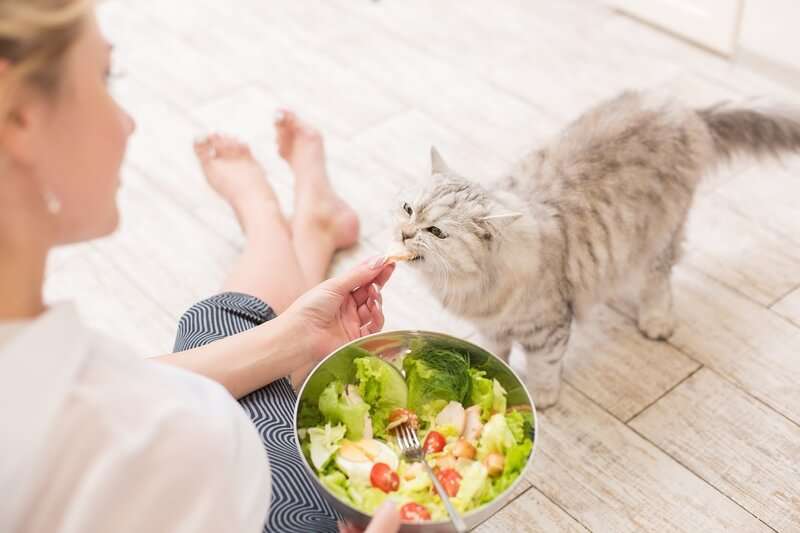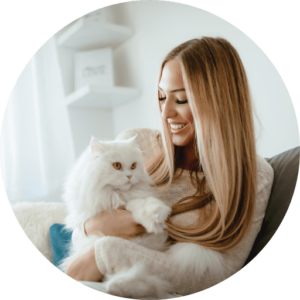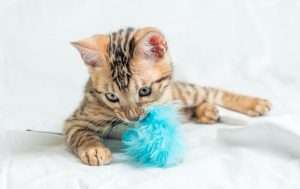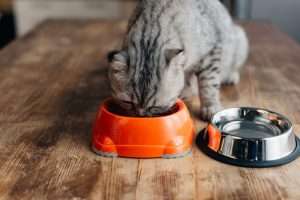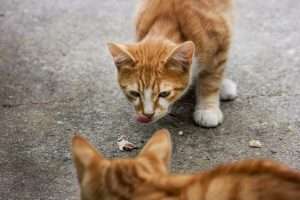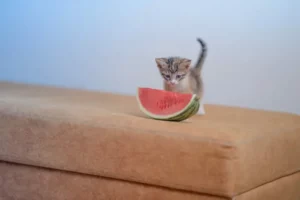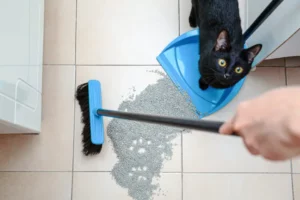Table of Contents
Many cat owners are curious about what human foods are safe for their pets to eat, and parsley is one such food that raises questions. In this article, we will explore whether or not cats can eat parsley and the potential benefits or risks of doing so.
It is important to note that cats have specific nutritional requirements that differ from humans, and a balanced diet is essential for their overall health and well-being. We will discuss the importance of a balanced diet and how adding certain foods like parsley can contribute to this.
Can Cats Eat Parsley? We will also explore the potential benefits of parsley for cats, as well as any potential risks or harm that it may pose. Lastly, we will provide some alternatives to parsley and offer tips on how to incorporate them into a cat’s diet.
By the end of this article, readers will have a better understanding of whether or not parsley is safe for their feline friends and how to make informed decisions about their cat’s diet.
Nutritional Value of Parsley for Cats
Parsley is an herb that is commonly used in human food as a garnish or seasoning. However, pet owners may be curious about whether or not their cats can safely eat parsley. While parsley is not a necessary addition to a cat’s diet, it does offer some potential benefits and nutritional value.
One of the main nutritional benefits of parsley is its high vitamin content. Parsley is a rich source of vitamin K, which plays a vital role in blood clotting and bone health. It also contains significant amounts of vitamins A and C, which are important for a healthy immune system and vision.
In addition to vitamins, parsley also contains antioxidants such as lutein and zeaxanthin. These antioxidants can help protect against cell damage and inflammation, which can lead to various health problems.
While parsley does offer some nutritional benefits, it is not essential for a cat’s diet. Cats are obligate carnivores, which means they require a diet high in animal-based proteins. As such, parsley should be viewed as a supplement to a balanced diet rather than a primary source of nutrition.
That being said, some pet owners may choose to feed their cats parsley for its potential health benefits. For example, parsley is often used as a natural breath freshener for both humans and animals. It may also provide digestive support and help alleviate symptoms of gas or bloating.
Overall, parsley can be a nutritious addition to a cat’s diet, but it should not replace other essential nutrients provided by a balanced diet. If you are considering feeding your cat parsley, it is important to do so in moderation and consult with your veterinarian first.
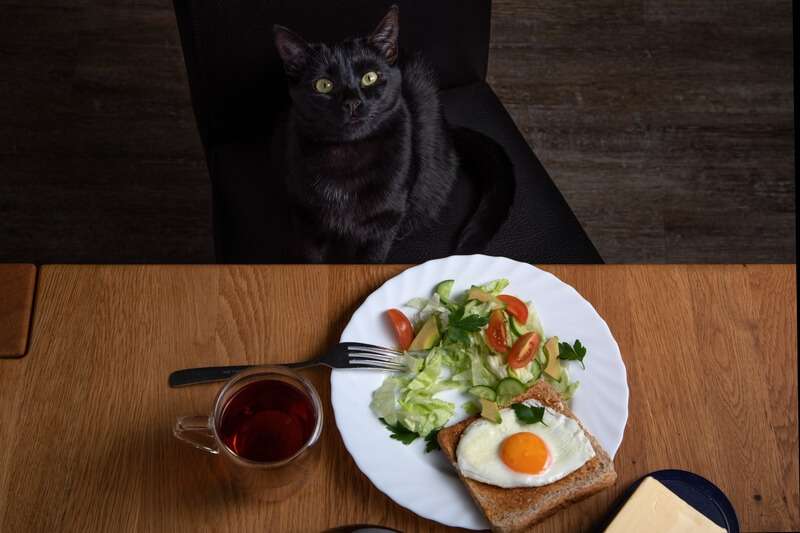
Can Cats Eat Parsley? Risks and Harm of Feeding Parsley to Cats
While parsley is considered a safe herb for human consumption, it is important to consider its effects on cats. Before feeding your cat parsley, it is essential to understand the potential risks and harm associated with it.
Can cats have parsley and is it safe for feline consumption?
In small amounts, parsley is generally considered safe for cats to eat. However, it is important to note that cats are obligate carnivores, which means their digestive systems are designed to process animal protein, not plant matter. As a result, cats may have difficulty digesting large amounts of parsley, which can lead to digestive problems such as vomiting or diarrhea.
Potential risks and harm of feeding parsley to cats
One of the primary concerns associated with feeding parsley to cats is its potential to cause toxicity. Parsley contains compounds called essential oils, which can be harmful to cats in large amounts. These oils can cause digestive problems, such as stomach upset or diarrhea, and can even be toxic in extreme cases.
Additionally, parsley contains high levels of oxalates, which can cause kidney problems in cats. If a cat consumes too much parsley, it can lead to the formation of crystals in the urine, which can then develop into kidney stones. This can be a painful and potentially life-threatening condition for cats.
Exceptions where parsley may not be recommended for cats
While parsley is generally considered safe for cats, there are certain exceptions where it may not be recommended. Cats with certain health conditions, such as kidney disease, may be more susceptible to the harmful effects of parsley and should avoid it altogether. Similarly, cats with known allergies to parsley or other plants in the same family, such as celery or carrots, should avoid parsley as well.
In summary, while parsley can provide some potential benefits for cats, it is essential to consider the potential risks and harm associated with feeding it to them. If you are considering feeding your cat parsley, it is always best to consult with your veterinarian first to determine if it is safe and appropriate for your cat’s individual needs.
Alternatives to Parsley for Cats
While parsley may not be the best option for your feline friend, there are plenty of alternative sources of nutrients that are safe for cats to eat. One option is cat-safe herbs like catnip and cat grass. These herbs not only provide nutritional value, but can also stimulate your cat’s senses and provide entertainment.
Catnip is a popular herb that cats love, and it’s safe for them to eat in moderation. It’s rich in vitamins and minerals like vitamin C, calcium, and magnesium. You can grow catnip in your garden or buy it in dried form. Some cat owners also use catnip as a training tool or a way to calm down an anxious cat.
Cat grass, which is typically made from wheatgrass or oat grass, is another option. It’s rich in vitamins A, B, C, and E, as well as minerals like calcium, iron, and magnesium. You can grow cat grass in a pot indoors or outside, and it’s easy to maintain.
When incorporating these herbs into your cat’s diet, it’s important to do so in moderation. Too much of any food can cause digestive issues, so start with a small amount and see how your cat reacts. You can add a small amount of catnip or cat grass to your cat’s food or offer it as a snack.
It’s also important to keep in mind that a balanced diet is crucial for your cat’s health. While adding herbs and other supplements to their diet can be beneficial, they should never replace a complete and balanced cat food. Talk to your veterinarian about the best options for your cat’s individual needs and dietary requirements.
When choosing cat food, look for products that are specifically formulated for cats and meet their nutritional requirements. The Association of American Feed Control Officials (AAFCO) sets standards for pet food nutrition, so make sure the food you choose meets these guidelines. Read the labels carefully to ensure that the food contains the necessary nutrients and doesn’t contain any harmful ingredients.
In conclusion, while parsley may not be the best option for cats, there are plenty of safe and nutritious alternatives like catnip and cat grass. When incorporating these herbs into your cat’s diet, do so in moderation and always consult with your veterinarian to ensure that your cat is getting the right balance of nutrients. By choosing a balanced and healthy diet for your cat, you can help them live a happy and healthy life.
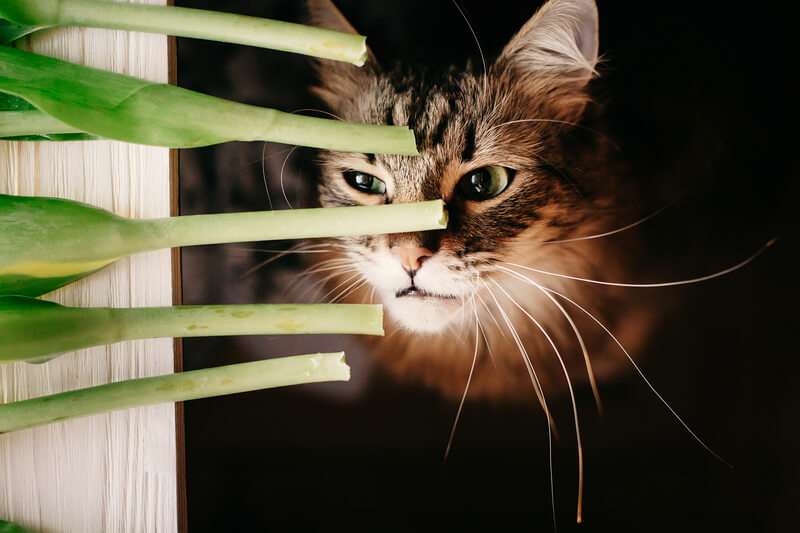
FAQs
Yes, there are many herbs that are safe for cats to eat in small amounts. Some examples include basil, thyme, and sage. However, it's important to research each herb and make sure it's safe for cats before offering it to them.
Cats with certain health conditions, such as kidney disease or urinary tract problems, may need to avoid parsley or other herbs. It's important to consult with a veterinarian before introducing any new foods to a cat with a preexisting health condition.
While it's rare for cats to be allergic to parsley, it's still possible. Symptoms of an allergic reaction may include vomiting, diarrhea, and skin irritation. If you suspect your cat is having an allergic reaction, contact your veterinarian immediately.
If your cat accidentally eats parsley in small amounts, they will likely be fine. However, if they eat a large amount or show any signs of illness, contact your veterinarian immediately.
Some herbs and supplements may have potential benefits for cats, such as aiding in digestion or reducing stress. However, it's important to research each herb and supplement and consult with a veterinarian before introducing them to your cat. A balanced and appropriate diet is the most important factor in a cat's overall health and wellbeing.
Conclusion
In conclusion, while parsley is not toxic to cats, it is not a necessary addition to their diet. Parsley contains some vitamins and antioxidants that may be beneficial to cats, but there are alternative sources of these nutrients that are safer and more appropriate for feline consumption. Feeding cats large amounts of parsley can lead to digestive problems and toxicity, so it is important to use it in moderation.
When it comes to incorporating herbs into a cat’s diet, there are many cat-safe options to choose from, such as catnip and cat grass. These herbs can provide a variety of nutritional benefits and be a tasty addition to your cat’s diet. It is important to consult with your veterinarian before introducing new foods into your cat’s diet and to ensure that they are getting a balanced diet with all the necessary nutrients.
Overall, understanding what foods are safe for cats to eat is crucial to their health and well-being. It is important to avoid feeding them unhealthy human foods that can be harmful to their digestive system and overall health. If you have any questions or concerns about your cat’s diet or health, speak with your veterinarian for personalized recommendations.


